Five teams of four to six students spent 10 weeks developing computer games for serious purposes, such as reforestation or uncovering prejudices. What did they come up with?
(Screenshot: Studio Woke)
English only
“This year’s skill level was extremely high,” says teacher Rafa Bidarra. He’s been teaching the interdisciplinary course Building serious games for well over 10 years and was impressed with the creative solutions his students came up with.
Despite the good results, he was, however, a tad disappointed as he had hoped to welcome more students from other faculties or even other universities. “This is an interdisciplinary course, but most of this year’s students came from the EEMCS Faculty. Working with students from different disciplines really enhances creativity and pushes ‘nerds’ to get out of their comfort zone.” He hopes that next year more students will find their way to the course, and wants to reassure them that it’s definitely not just ‘hardcore programming’. “It’s also about developing soft skills by working together in a small game studio, playtesting and communicating with external clients.”
- Curious about what games the students developed? Find out below.
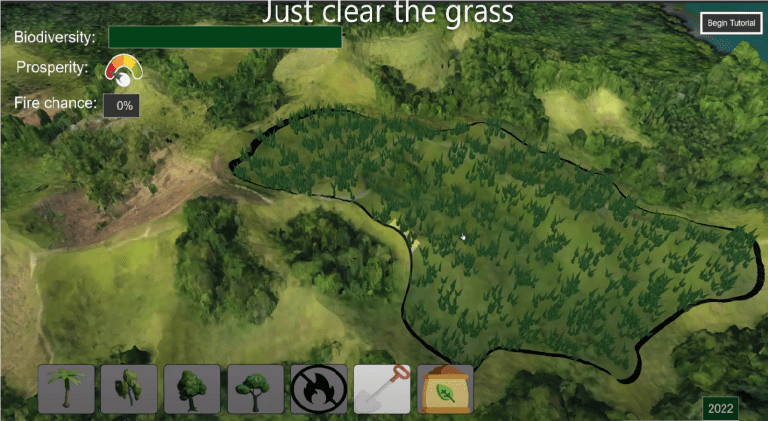
Build, expand and manage a fictional version of the Temboan Beach rainforest. Take the right decisions to create a healthy rainforest, while keeping the local community happy and limiting wildfire damage. Benni’s Forest gives players a simplified, yet challenging, experience of managing a rainforest reforestation project. Playing the game, you realise that reforestation is much more than simply planting more trees and plants. There are many factors that impact the success of the rainforest reforestation project. Can you make it successful?
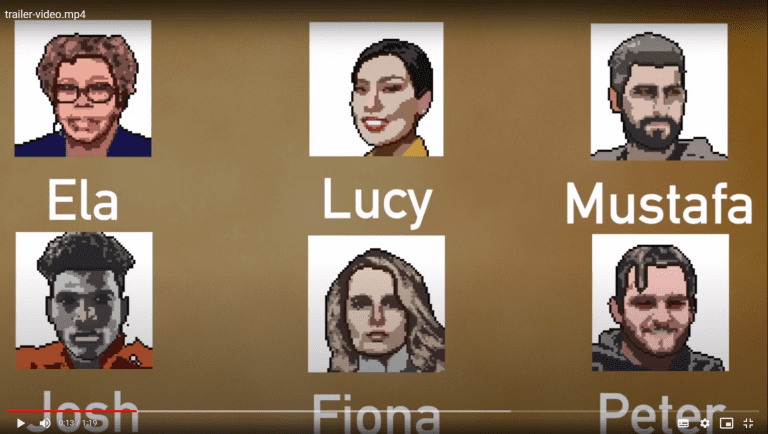
Survive on a deserted island by assigning jobs to characters to succeed in your collective escape plan. Players judge a character’s ability and liking for a job based on a general description, which elicits possible implicit biases. The game is developed as an in-class education tool for MBO (vocational education) students. The global outcomes of the game are used afterwards to spark a class discussion about implicit biases.
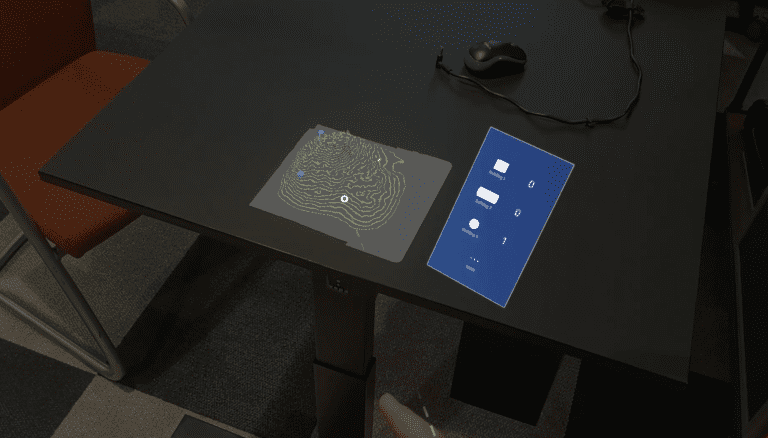
One of the most advanced games this year aims at exploring how Augmented Reality (AR) can help develop mathematical intuition. The game uses a Hololens, an AR headset that lets you interact with a 3D model on your desk. The player is tasked with choosing safe locations on an active volcano to build. For this topographical challenge, your mathematical intuition is assisted by visual feedback. Once you are done building, a volcanic eruption is simulated to evaluate the safety of those locations. Will your buildings survive the lava?
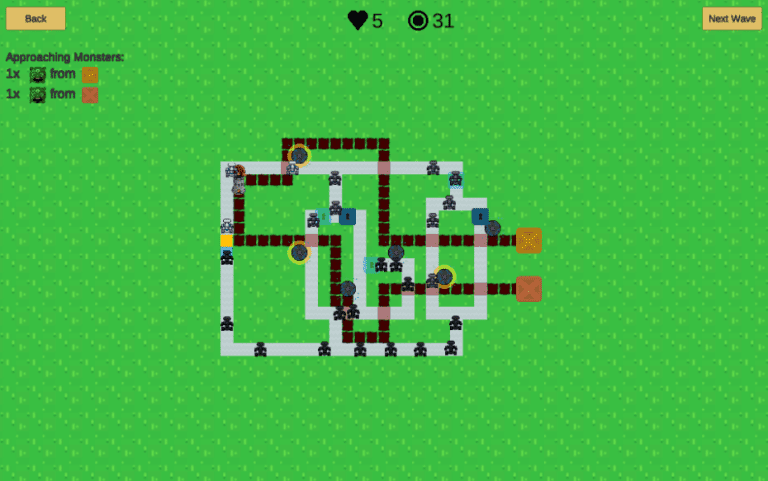
How can a serious game convey intuitive insights into Ohm’s Law behaviour? Team PhySix built ‘Tower of Ohm’, a tower defence game with an electric circuit analogy. This circuit supplies power to the defence towers. In order to stimulate implicit learning and build intuition of electrical physics, the player is progressively exposed to more difficult physics elements conveyed through analogies, to defend their base.
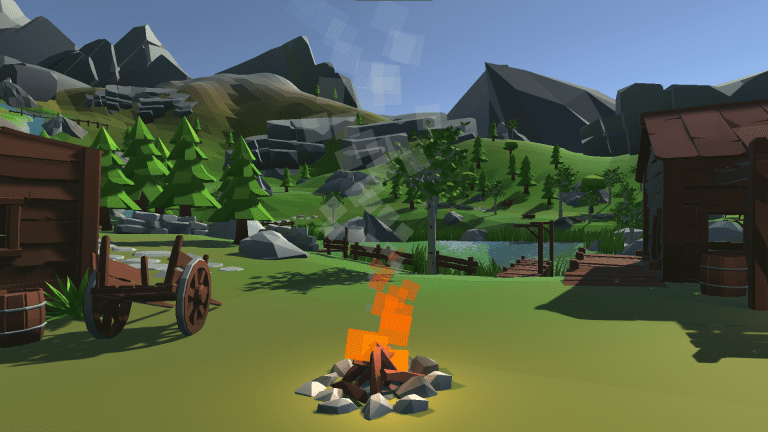
Natural environments often have a psychological restorative effect on human well-being; is that also the case for virtual environments? To help Leiden University answer this, Studio Woke developed Resto Quest, a single-player first-person exploration game designed to research the restorative effects of virtual 3D natural and urban environments. In this game, the player’s help is needed to achieve a global objective. The main gameplay consists of exploring the environment looking for tasks, which are then performed by completing a simple mini-game. By making players find the tasks, they naturally experience more of the environment. After each task is completed, a positive change of scenery happens, which further promotes more exploration.
Do you have a question or comment about this article?
m.vanderveldt@tudelft.nl

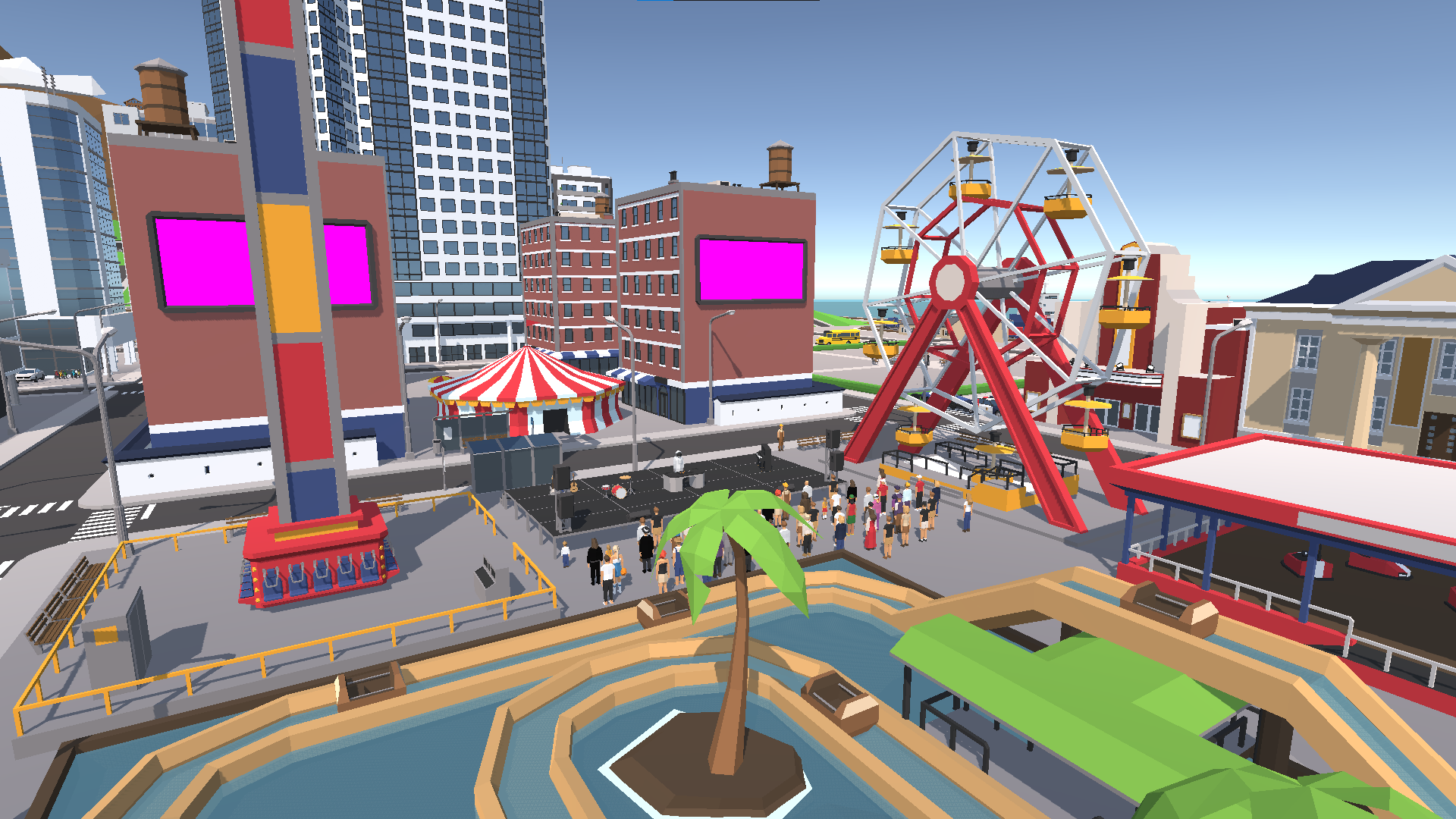
Comments are closed.